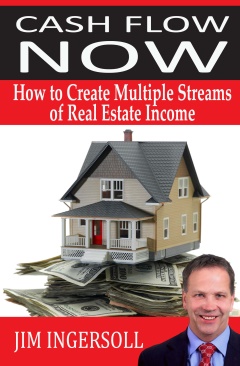How to buy houses with no money down and minimal risk!
Most investors think that the only way to buy investment property is to save up some cash and then go to the bank for a loan. Many banks will want a 20% down payment plus 6 months reserve (cash in an account equal to 6 months of mortgage payments) to loan on an investment property. This can be $40,000 – $50,000 that an investor would have to save up for just to spend it on one property! Whether you are an experienced investor, or just getting started, this can be very discouraging.
Let’s go back to our original question: How to buy houses with little or no money and minimal risk? One of the most overlooked techniques of buying houses without banks is the lease with option to buy. This solution is only appropriate for those home owners who need to sell a house fast. It’s usually an extenuating circumstance that would warrant this.
What is a lease?
A lease is very simply put the right to possess, occupy, enjoy, and use a given parcel of real property. When a lease is executed a leasehold estate is created which is actually a form of personal property. This can eliminate a lot of the risks associated with property ownership. A properly structured lease will allow an investor, who will then be the tenant, to enter into a sub-lease with another tenant. This is also referred to as a sandwich lease.
Example:
The owner of a property needs to sell his house fast so he calls a local investor. The investor leases the property for the monthly mortgage payment of $1000 per month. The investor pays the seller $100 for the privilege of doing this transaction. The investor then subleases the property to a tenant for $1300 per month for a profit of $300. This is an example of a “sandwich lease”. The investor is the middle of the owner and the tenant and is “sandwiched” between them.
What about repairs?
The owner of a house, especially in the state of North Carolina, would be responsible for maintaining a habitable residence so the burden of repairs would fall on him. The investor who is the primary lessee would remain liable for making the monthly rent payment regardless of whether the tenant pays or not. So what happens in the event of the leaky faucet or stopped toilet? Traditionally the landlord would make all these repairs. However, the tenant and owner can enter into an agreement where the tenant will be responsible for the first $250 in repairs in exchange for the exclusive right to buy the property at a discounted price. This is where the option comes in.
What is an option?
Simply put an option is the right to buy or sell an asset at a specific price over a specific period of time. Let’s say the property is worth $250,000. Our seller is motivated so he gives the investor an option to buy the house at the current mortgage balance of $225,000. Let’s say the current market value of the property is $250,000—a nice spread. The investor then sells the option to the buyer for a discounted price of $240,000. This leaves the investor with $300 per month in cash flow, $15,000 in equity, plus whatever option money he is able to collect from the tenant-buyer.
Why do it this way?
The investor wanted to buy a profitable investment property without having to wait to save of tens of thousands of dollars. By the way, how much money did the investor have to come out of pocket in this example–$100!
Another benefit is that the investor has agreed to a lease and not a mortgage. Default on a mortgage can be devastating but defaulting on a lease if far less damaging. Also, the tenant buyer of a $250,000 house can reasonably be expected to come up with $5,000 to $10,000 in option money, making them a much higher quality tenant and less likely to default. By the way, that $5,000 to $10,000 is disposable income to the investor. Try getting that type of return with a bank loan!
This very brief article is meant to be an introduction to thinking about real estate in a different way. More education will be required for attempting this kind of transaction on your own. Feel free to post questions in the comments section.
Mike Otranto has been an active real estate investor in the Raleigh N.C. area since 2005. He began with 2 – 6 unit multi-family properties in downtown Raleigh and has since moved is focus toward single family residential properties. Always up for a challenge he shuns the long term mortgages offered by commercial banks in favor of creative financing strategies such as subject-to transactions, owner financing with purchase money mortgages, long term leases with option to buy, equity options, and more. He also holds a NC Brokers License. Visit Mike’s webpage at http://MikeOtranto.com or catch Mike on YouTube.






